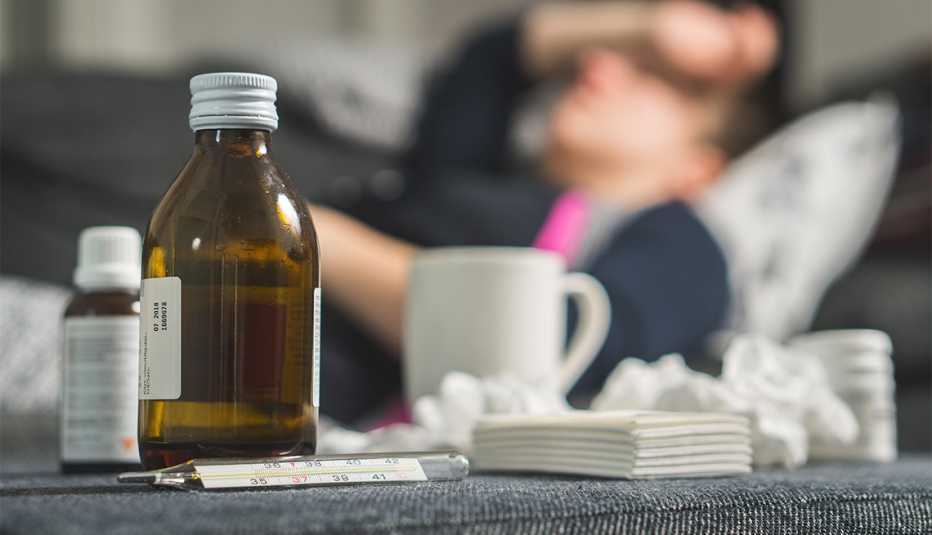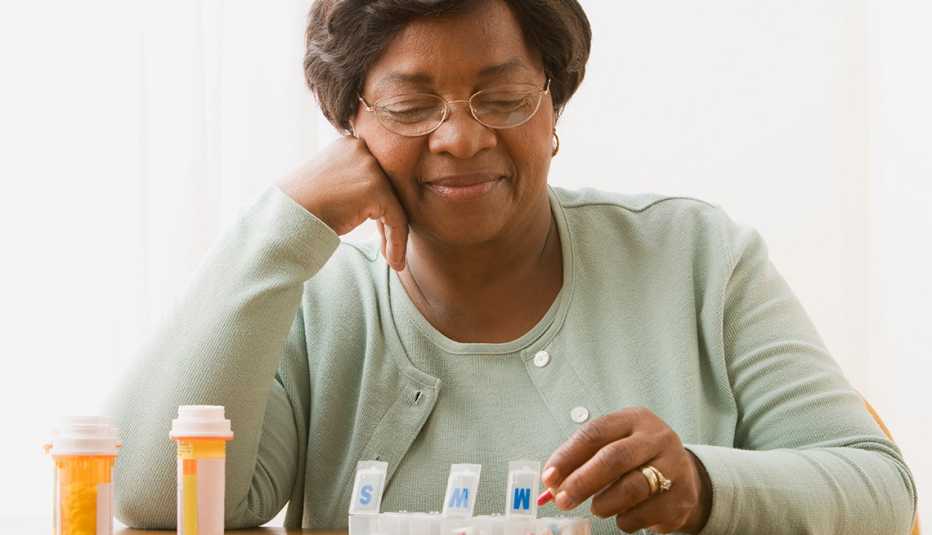4. Grapefruit and cholesterol-lowering drugs
Consuming grapefruit or grapefruit juice can inhibit an enzyme that’s necessary for statins to be metabolized, Qato cautions. As a result, “the drug stays in the blood and accumulates, increasing the risk of side effects such as muscle pain.”
Of the statins, atorvastatin, lovastatin and simvastatin (common brand names Lipitor, Altoprev/Mevacor and Zocor) are the most problematic as far as grapefruit juice goes. To be on the safer side, patients are often advised to avoid grapefruit and grapefruit juice entirely while taking statins, Qato says.
Grapefruit can cause problems when mixed with other medications too. A few include some antianxiety drugs, such as BuSpar, and certain corticosteroids that treat Crohn’s disease or ulcerative colitis, such as Entocort EC and Uceris tablet (both budesonide), according to the U.S. Food and Drug Administration.
5. Bananas and other potassium-rich foods, plus ACE inhibitors
If you take blood pressure-lowering ACE inhibitors with potassium-rich foods, including bananas, avocados, tomatoes and dried apricots, you can get high potassium levels in your body, which can lead to potentially dangerous heart arrhythmias, Brown warns. That’s why it’s wise to limit your intake of potassium-rich foods while taking an ACE inhibitor. It’s recommended that some ACE inhibitors, such as captopril and moexipril (brand names Capoten and Univasc), be taken at least an hour before meals.
6. Fruit juice and some blood pressure drugs/ antihistamines
If you’re taking a calcium channel blocker (another type of hypertension drug), steer clear of grapefruit juice because it can render the drug ineffective, Qato says. Also, if you’re taking the beta-blocker atenolol (Tenormin) or the renin inhibitor aliskiren (Tekturna), you should know that drinking apple juice or orange juice could decrease levels of the drug in your body.
In a lesser-known interaction, some of the newer generation of antihistamines — namely, fexofenadine (Allegra) — can also interact with acidic juices, such as apple, orange and grapefruit juice, Qato says. “These acidic juices could affect absorption and neutralize the effect of antihistamines so they don’t really work.” If you’re seeking allergy relief, Qato advises avoiding these juices within two to four hours of taking one of these antihistamines.
7. High-fiber foods and levothyroxine, digoxin
Consuming soybean flour, walnuts and other high-fiber foods can make levothyroxine — a drug listed under several brand names and used to treat an underactive thyroid gland — less effective. The same is true if you’re taking digoxin, which is sold under several brand names and is used to treat heart failure. High-fiber foods can affect a person’s absorption of the drug, Qato explains, so your best bet is to take digoxin at least two hours before or after consuming meals or snacks that are loaded with fiber.
8. Licorice and blood pressure medications
Black licorice may taste sweet, but the candy can have some pretty sour health effects. The confection contains the compound glycyrrhizin, which can trigger abnormal heart rhythms and high blood pressure in some people. In fact, the Food and Drug Administration issued a warning a few years back saying if you’re older than 40, eating 2 ounces of black licorice a day for at least two weeks could land you in the hospital with an irregular heart rhythm or arrhythmia.
Licorice can also interact with medications and supplements, the FDA says, including those prescribed for high blood pressure (ACE inhibitors and diuretics). People taking these medications should not use licorice products, health experts say, as it can make side effects worse or cause potassium to build up in the body.
Licorice can also interact with MAO inhibitors, blood thinners and medications processed by the liver.
Beware of fortified foods
In an often overlooked phenomenon, certain medications can interact with the vitamins and minerals that are added to everyday foods like breakfast cereal, bread and milk — especially calcium, iron, magnesium and zinc.
And while “the prescription label may warn you not to take the drug with calcium or iron, it doesn’t mention fortified foods,” where these nutrients often hide, Brown says.
The trouble is, if you have an infection and take an antibiotic like tetracycline, doxycycline or ciprofloxacin along with calcium-fortified orange juice or a super-fortified energy bar, cereal or smoothie, the minerals may bind with the drug and inhibit its absorption in the body, Brown explains. This increases the chances that the treatment could fail or be insufficient to produce optimal results. And if you consume multiple fortified foods in the same meal, this could have a pronounced effect on your body’s ability to absorb the medication.
The best ways to protect yourself from this risk: If a drug’s package insert warns you not to take the medication with calcium supplements, antacids, iron-containing supplements or dairy products, “that’s a red flag that there could be an interaction with fortified foods that contain the same nutrients,” Brown says.
It’s also wise to ask your pharmacist or doctor if you should avoid certain nutrients close to the time that you take the medicine. To be on the safe side, your best bet is to take the drug an hour or two before having calcium-fortified juice, a fortified cereal or a nutrient-dense energy bar or drink — or to wait three hours after having the food or beverage to swallow the drug. That way, “your body will have enough time to absorb the medication,” Brown says.
Editor’s Note: This story, originally published Feb. 3, 2022, has been updated with new information.









































































